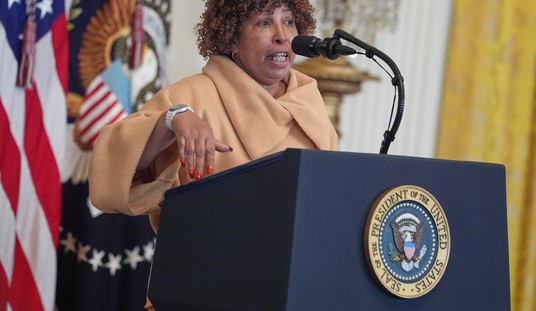A California church is fighting to keep its property after splitting from the Episcopal Church due to the organization’s acceptance of homosexual priests.
In 2008, St. Columbia Church parted ways with the EC and joined the more conservative Anglican Church of America. The Episcopal Church has filed a lawsuit charging that St. Columbia took illegal possession of the premises.
St. Columbia claims the property was transferred to the church’s administration by John David Schofield, former bishop of the diocese of San Juoquin.
That was a bunch of logistical stuff…
Let’s get back to the core issue: the congregation believed they had to get outta there because the Episcopal Church revolutionized its position on homosexuality, allowing gay priests to serve.
In 2006, in the wake of the appointment of Gene Robinson, the group’s first openly gay bishop, Schofield made a move to sever the entire diocese from the EC.
Schofield signed over the Columbia property in 2007, but he was canned by the EC before he could do anything else.
St. Columbia contends that it’s normal practice for bishops to transfer ownership of property.
Strange that we’re here — is truth static, or dynamic?
If it’s static, then why did the Episcopal Church change its very, very old stance on homosexuality? Was it wrong for all that time? If so, why trust it now? On the other hand, if truth is dynamic, then why involve oneself with any particular religion to begin with?
Since the EC’s decision, churches have been hoppin’ out of the boat. In 2017, 29 churches went to court-held war with with Diocese of South Carolina, to the tune of hundreds of millions of dollars.
Furthermore, a pastoral resolution now allows Episcopal priests to perform gay marriages, even against the disapproval of bishops.
The issue of homosexuality — and homosexual identity — is definitely on the upswing, found among my articles at the gym (here), in the governorship (here), in the Senate race (here), and in Star Wars (here).
For those of you interested, here are statements regarding gay matters in the church from both the Anglican Church of America and the Episcopal Church.
Anglican:
The Archbishop and Bishops of the Anglican Church in North America have received the recent ruling by the Supreme Court of the United States of America and are deeply grieved by the stark departure from God’s revealed order. We are concerned for the inevitable results from this action to change the legal understanding of marriage and family life.
…
Marriage is established by God for the procreation and raising of children and for the good of society. For this reason, governments have an interest in marriage and have delegated authority from God to protect and regulate it. But no court, no legislature and no local magistrate has the authority to redefine marriage and to impose this definition on their citizens.
…
The United States of America, so its founders believed and taught, is a nation under God whose citizens’ fundamental rights are derived from the Creator. There is no right to a relationship which is contrary to the Creator’s express design. We cannot accept the Supreme Court’s decision purporting to find a fundamental right to same-sex “marriage” any more than we can accept its claim to have found a right to destroy human life in the womb. We will work with others to overturn this decision, and we pray that others will join with us in this effort.
Episcopal:
In 1976, the General Convention of the Episcopal Church declared that “homosexual persons are children of God who have a full and equal claim with all other persons upon the love, acceptance, and pastoral concern and care of the Church” (1976-A069). Since then, faithful Episcopalians have been working toward a greater understanding and radical inclusion of all of God’s children.
Along the way, The Episcopal Church has garnered a lot of attention, but with the help of organizations such as Integrity USA, the church has continued its work toward full inclusion of lesbian, gay, bisexual, and transgender (LGBT) Episcopalians. In 2003, the first openly gay bishop was consecrated; in 2009, General Convention resolved that God’s call is open to all; in 2012, a provisional rite of blessing for same-gender relationships was authorized, and discrimination against transgender persons in the ordination process was officially prohibited; and in 2015, the canons of the church were changed to make the rite of marriage available to all people, regardless of gender.
To our lesbian, gay, bisexual, and transgender brothers, sisters and siblings: “The Episcopal Church welcomes you!”
Episcopalians are certainly on the cutting edge: the Church is also considering changing God’s sex (see here).
Once upon a time, religion affected the culture. It seems now, in an ever-increasing way, influence is flowing in the opposite direction. Given the eroding state of our culture as of late, I’d say that promises to be a bad idea.
Relevant RedState links in this article: here, here, here, here, and here,
See 3 more pieces from me: Family Guy & Millennials, blacks & unemployment, and Catholicism & the MET Gala.
Find all my RedState work here.
And please follow Alex Parker on Twitter and Facebook.
Thank you for reading! Please sound off in the Comments section below. For iPhone instructions, see the bottom of this page.
If you have an iPhone and want to comment, select the box with the upward arrow at the bottom of your screen; swipe left and choose “Request Desktop Site.” You may have to do this several times before the page reloads. Scroll down to the red horizontal bar that says “Show Comments.”















Join the conversation as a VIP Member